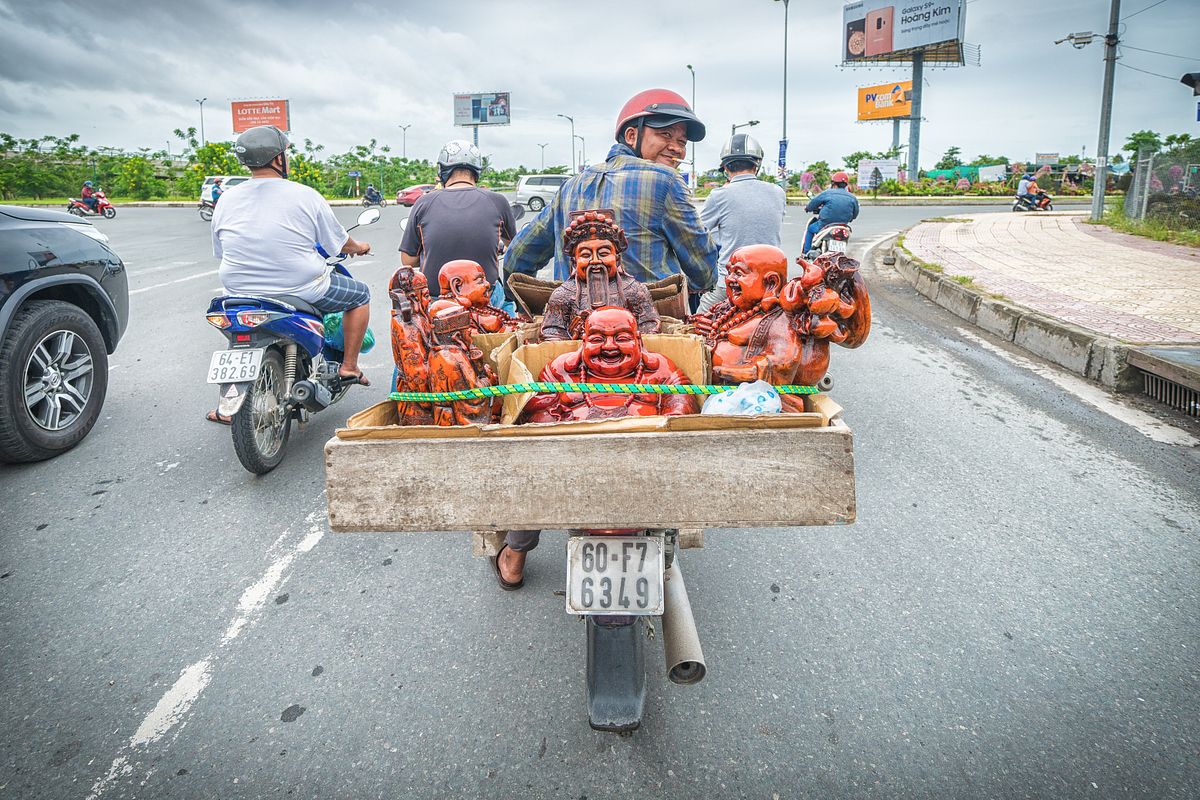I was maybe seven when I first clasped my hands and whispered a plea to Ông Địa.
I had lost a cheap red plastic ring, which was a treasure in my childhood world. I searched everywhere, crawling under the bed, shaking out my schoolbag, and suspecting the dog. Still nothing. Teary-eyed, I turned to my grandmother. She didn’t scold me, only smiled and said gently: “Pray to Ông Địa, honey. He’s very fond of little ones.”
So I did it awkwardly. I folded my hands and muttered a promise to eat my vegetables and stop hiding report cards. Minutes later, I found the ring on the lowest step of the stairs, somewhere I was sure I had already checked. It felt like a wink from the universe.
From then on, every time I lost something: a pencil, a chair tie, a wallet; I turned to Ông Địa. Not in ceremony, but in habit. A whisper under my breath. A pause. A breath of hope.
We never talked much about faith in my family, but folk spirituality was everywhere: altars tucked into corners, rice offerings on ancestor days, bowed heads, and burning incense. These weren’t rules we followed, they were rhythms we lived. Folk beliefs weren’t taught so much as absorbed, like steam from a simmering pot.
To others, Ông Địa is the plump, smiling figure perched beside Thần Tài at storefronts, guardian of wealth and luck. But to me, he was something quieter: the gentle keeper of misplaced things, the listener of small requests. He was a presence that lived in the cracks of daily life: in the kitchen corner, beside the potted plant, and inside the quiet act of asking.
As I grew older, I sometimes wondered if praying to him was silly. I didn’t always believe he’d help. And yet, the ritual remained. Not because I thought someone was listening, but because it gave shape to my worry. In the small chaos of losing something, the act of pausing to ask made the world feel kinder. Less random.
I’ve come to realize that my little prayers weren’t just about finding things. In whispering his name, I wasn’t just asking for help. I was recalling my grandmother’s voice, the warmth of home, the belief that unseen things still matter.
Even now, when I misplace my keys or phone, I find myself stopping to issue that quiet plea. And sometimes, the missing thing shows up. Sometimes it doesn’t. But always, I feel a little steadier.
Maybe that’s the gift folk beliefs offer: not answers, but companionship. Not certainty, but care.















